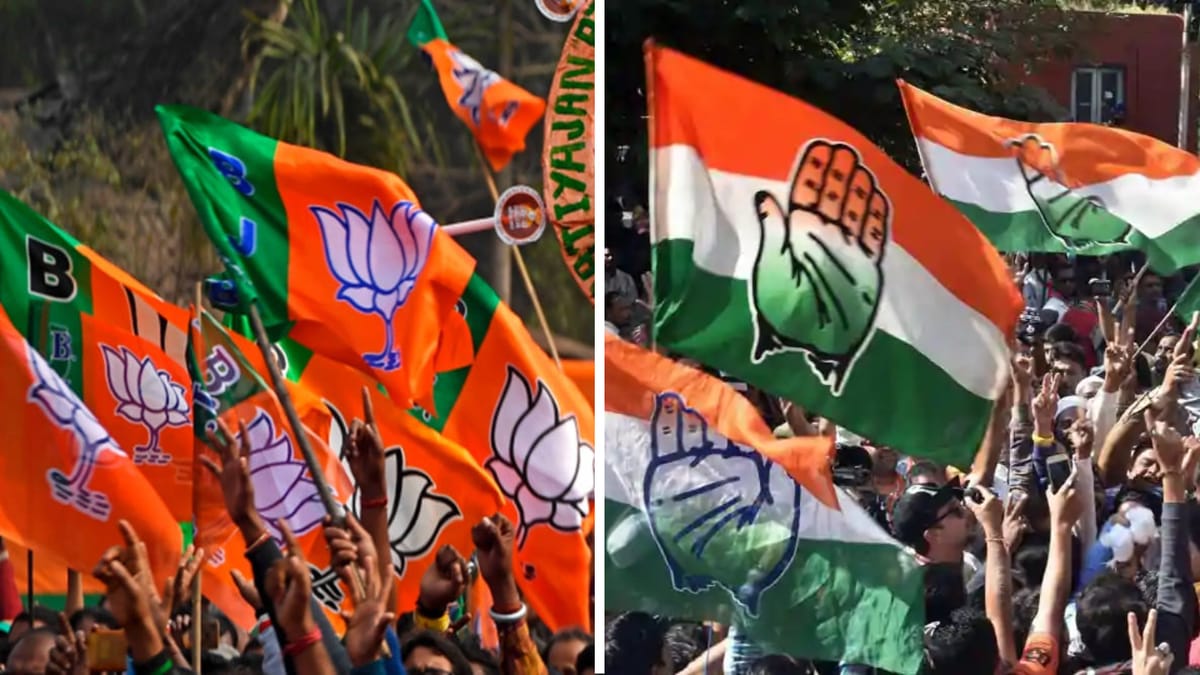
The exit polls have, as in the general election, once again predicted wrong results in both state elections. In Haryana, the exit polls predicted the Indian National Congress (INC) party would win between 44 to 61 seats, comfortably surpassing the majority mark of 46 in the 90-member Assembly and the Bharatiya Janata Party (BJP) was expected to win 18 to 32 seats. In Jammu & Kashmir (J&K) exit polls indicated that the Congress-National Conference (Congress-NC), an alliance of INC with the Jammu & Kashmir National Conference (JKN) and other regional parties, would emerge as the largest party but will fail to clear the majority mark in the state.
Haryana
BJP, the national ruling party, edged past INC grabbing 48 seats out of the 90 seats up for grabs. This would be BJP’s third consecutive term in Haryana, the first time in history by any party.
Reports suggested that senior BJP leader and former State Home Minister Anil Vij could have been the frontrunner for the Chief Minister (CM) seat. However, sitting BJP CM, Nayab Singh Saini, is likely to retain his seat.
INC concluded the defeat with a higher vote percentage at the expense of the Jannayak Janta Party (JJP) and the Indian National Lok Dal (INLD), which have lost a significant share of votes in the region. INC bagged 37 seats falling nine short of the majority mark.
Jammu & Kashmir
The Congress-NC alliance is set to form a government under the leadership of Omar Abdullah, who is set to become the Chief Minister of J&K. Congress-NC managed to win 49 seats in J&K while BJP got limited to 29 seats.
Abdullah was the CM from 2009 to 2015. The primary agenda of the new government will be the restoration of statehood and resurrection of Articles 370 and 35A.
What does it mean for national politics?
Losing state elections could have massive repercussions on the larger political landscape of the country.
In direct relation, J&K and Haryana have four and five seats respectively in the Rajya Sabha, the council of states. Currently, the National Democratic Alliance (NDA), a national alliance of BJP, has 120 seats in the Rajya Sabha out of 250.
With elections cramped in the next few months (Maharastra, Jharkhand and Delhi), the BJP needed to reverse the anti-incumbency sentiment among the population that was reflected in the national general assembly elections 2024. Winning the Haryana elections would be a huge morale boost for the party. However, INC’s performance has improved drastically in both elections.
Two major state parties, Telugu Desam Party (TDP) and Janata Dal (United) (JDU), were the deciding factors for the formation of the national government in 2024. Together they occupy 28 seats in the Lok Sabha Assembly. Losing them would leave BJP’s alliance at 265-mark which is below the majority of 272 seats.
Hence, it becomes ever so important as the national government clings to the ropes of the coalition with state parties. Losing these state elections would have undermined the confidence of the regional parties in coalition with the BJP and jeopardised their continued support.

